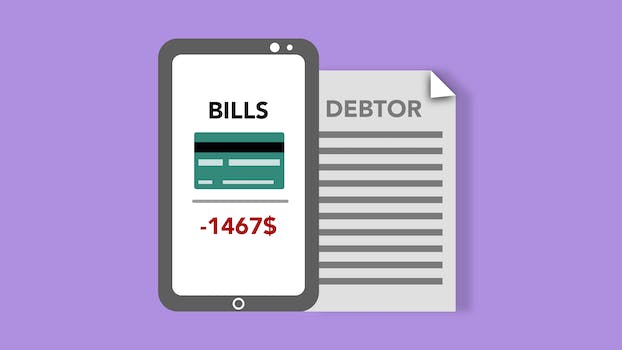Ways To Save Money As A Kid
Introduction

As a kid, it’s never too early to start learning about the importance of saving money. Whether you’re saving up for a new toy or trying to build up your savings account, there are plenty of ways to save money as a kid. In this article, we’ll explore some simple and effective strategies for kids to start saving money and building good financial habits for the future.
10 Simple Money-Saving Tips for Kids
As a kid, it can be challenging to save money, especially when you have limited resources and a lot of things you want to buy. However, learning how to save money early in life can set you up for financial success in the future. Here are ten simple money-saving tips for kids that can help you save money and achieve your financial goals.
1. Set a savings goal
The first step to saving money is to set a savings goal. Decide what you want to save for, whether it’s a new toy, a video game, or a trip to the movies. Having a specific goal in mind can help you stay motivated and focused on saving.
2. Create a budget
Creating a budget is an essential part of saving money. Make a list of your expenses, such as snacks, toys, and other things you buy regularly. Then, figure out how much money you have to spend each week or month. Try to stick to your budget as much as possible.
3. Avoid impulse buying
Impulse buying can quickly drain your savings. Before you buy something, ask yourself if you really need it or if it’s just something you want. If it’s not a necessity, consider waiting a few days to see if you still want it.
4. Look for deals and discounts
Always be on the lookout for deals and discounts. Check out sales, clearance racks, and online deals before making a purchase. You can also use coupons and promo codes to save money.
5. Save your allowance
If you receive an allowance, try to save some of it each week. Even if you only save a small amount, it can add up over time. Consider putting your savings in a piggy bank or a savings account.
6. Do chores for extra money
If you want to earn extra money, consider doing chores for your family or neighbors. You can offer to mow lawns, walk dogs, or do other tasks for a fee. This can help you earn money while also teaching you the value of hard work.
7. Avoid expensive hobbies
Hobbies can be a great way to spend your free time, but some hobbies can be expensive. If you’re trying to save money, consider finding hobbies that don’t require a lot of money, such as reading, drawing, or playing board games.
8. Pack your lunch
If you usually buy lunch at school, consider packing your lunch instead. This can save you a lot of money over time. You can also pack snacks and drinks to avoid buying them at school.
9. Use hand-me-downs
If you have siblings or cousins who are older than you, consider using their hand-me-downs instead of buying new clothes or toys. This can save you a lot of money, and you might even find some cool items that you wouldn’t have bought otherwise.
10. Learn to say no
Finally, learning to say no can be a powerful tool for saving money. If your friends want to go out to eat or see a movie, but you don’t have the money, don’t be afraid to say no. You can suggest doing something else that’s free or low-cost, such as going for a walk or playing a game.
In conclusion, saving money as a kid can be challenging, but it’s an essential skill to learn. By setting a savings goal, creating a budget, avoiding impulse buying, looking for deals and discounts, saving your allowance, doing chores for extra money, avoiding expensive hobbies, packing your lunch, using hand-me-downs, and learning to say no, you can save money and achieve your financial goals. Remember, every little bit counts, and the earlier you start saving, the better off you’ll be in the long run.
How to Start a Successful Lemonade Stand and Save Money
As a kid, it can be challenging to save money, especially when you have limited sources of income. However, starting a lemonade stand can be a great way to earn some extra cash and learn valuable entrepreneurial skills. Here are some tips on how to start a successful lemonade stand and save money.
Firstly, you need to find a good location for your lemonade stand. Look for a spot that has high foot traffic, such as a park or a busy street corner. Make sure to get permission from the property owner or local authorities before setting up your stand. You can also consider partnering with a local business to set up your stand outside their store.
Next, you need to create a business plan. Determine how much money you need to invest in supplies, such as lemons, sugar, cups, and ice. Set a price for your lemonade that will cover your costs and provide a reasonable profit. You can also offer discounts for repeat customers or bundle deals with snacks or cookies.
Once you have your plan in place, it’s time to start promoting your lemonade stand. Use social media platforms like Facebook and Instagram to spread the word about your business. You can also create flyers and distribute them in your neighborhood or at local events. Make sure to include your stand’s location, hours of operation, and any special deals or promotions.
On the day of your lemonade stand, make sure to have everything you need ready to go. Set up a table and chairs, and decorate your stand with colorful signs and banners. Make sure to have plenty of ice and cups on hand, and keep your lemonade chilled in a cooler or refrigerator. Dress appropriately for the weather and wear comfortable shoes, as you may be standing for long periods.
When customers start coming to your stand, be friendly and welcoming. Offer samples of your lemonade and engage in conversation with your customers. Ask for feedback on your product and service, and use this information to improve your business in the future.
Finally, make sure to keep track of your earnings and expenses. Use a notebook or spreadsheet to record how much money you make each day and how much you spend on supplies. This will help you determine your profit margin and identify areas where you can cut costs.
Starting a lemonade stand can be a fun and rewarding way to earn money as a kid. It teaches valuable skills like budgeting, marketing, and customer service, and can help you save money for future goals. With a little planning and hard work, you can create a successful lemonade stand that will bring joy to your customers and financial success to you.
5 Fun and Frugal Activities for Kids
As a kid, it can be tough to save money. With so many tempting toys and treats, it’s easy to spend every penny you have. However, learning to save money is an important skill that will serve you well throughout your life. Here are five fun and frugal activities that can help you save money as a kid.
1. Start a savings jar
One of the easiest ways to save money is to start a savings jar. All you need is a jar or container of some kind and a willingness to save. Every time you receive money, whether it’s from an allowance, a birthday gift, or a job, put a portion of it into your savings jar. You can even decorate the jar to make it more fun and personalized.
2. Have a garage sale
If you have a lot of toys or clothes that you no longer use, consider having a garage sale. This is a great way to make some extra money and declutter your space at the same time. You can even team up with friends or family members to make it a bigger event. Just be sure to get permission from your parents before setting up shop.
3. Make your own gifts
Instead of buying expensive gifts for your friends and family, consider making your own. This not only saves you money, but it also shows that you put thought and effort into the gift. Some ideas include homemade cards, baked goods, or even a personalized photo album.
4. Start a garden
Starting a garden is a fun and educational way to save money. You can grow your own fruits and vegetables, which not only saves you money on groceries, but also teaches you about where your food comes from. Plus, gardening is a great way to get outside and enjoy nature.
5. Plan a picnic
Instead of going out to eat or ordering takeout, plan a picnic with your family or friends. This is a fun and frugal way to enjoy a meal together. You can even make it a potluck and have everyone bring a dish to share. Not only does this save you money, but it also allows you to spend quality time with the people you care about.
In conclusion, there are many fun and frugal activities that can help you save money as a kid. Whether it’s starting a savings jar, having a garage sale, making your own gifts, starting a garden, or planning a picnic, there are plenty of ways to be smart with your money. By learning to save at a young age, you’ll be setting yourself up for financial success in the future.
The Importance of Budgeting for Kids: Tips and Tricks
As a kid, it can be challenging to save money, especially when you have limited resources. However, learning how to budget and save money is an essential life skill that can benefit you in the long run. Budgeting helps you manage your finances, avoid debt, and achieve your financial goals. In this article, we will discuss some tips and tricks on how to save money as a kid.
Firstly, it is essential to understand the value of money. Money is a limited resource, and it is crucial to use it wisely. As a kid, you may not have a steady income, but you can still save money by cutting down on unnecessary expenses. For instance, instead of buying snacks and drinks from the vending machine, you can pack your lunch and bring a water bottle from home. This way, you can save money and also eat healthier.
Another way to save money is by setting a budget. A budget is a plan that helps you manage your money by allocating funds for different expenses. To create a budget, you need to list down all your income sources and expenses. Income sources may include allowances, gifts, or earnings from a part-time job. Expenses may include school supplies, clothing, entertainment, and savings. Once you have listed down your income and expenses, you can allocate funds accordingly. It is essential to stick to your budget and avoid overspending.
Saving money can also be fun. You can set a savings goal and work towards achieving it. For instance, you can save money to buy a new toy, gadget, or game. To achieve your savings goal, you can set aside a portion of your allowance or earnings from a part-time job. You can also track your progress by keeping a record of your savings. This way, you can see how much you have saved and how much more you need to reach your goal.
Another way to save money is by finding ways to earn extra income. As a kid, you may not be able to work full-time, but you can still find ways to earn money. For instance, you can offer to do chores for your neighbors, such as mowing the lawn, walking their dog, or babysitting. You can also sell items that you no longer need, such as old toys, books, or clothes. By earning extra income, you can increase your savings and achieve your financial goals faster.
In conclusion, learning how to budget and save money is an essential life skill that can benefit you in the long run. As a kid, you may not have a steady income, but you can still save money by cutting down on unnecessary expenses, setting a budget, setting a savings goal, and finding ways to earn extra income. By following these tips and tricks, you can develop good financial habits that will help you manage your finances and achieve your financial goals. Remember, it is never too early to start saving money, and every little bit counts.
Ways to Earn Money as a Kid and Save for the Future
As a kid, it can be challenging to save money, especially when you have limited sources of income. However, it is essential to start saving early to develop good financial habits that will benefit you in the future. Here are some ways to save money as a kid.
Firstly, you can start by setting a savings goal. It could be a new toy, a game, or even a college fund. Having a specific goal in mind will motivate you to save more and spend less. You can create a savings jar or piggy bank and label it with your goal. Every time you receive money, put a portion of it into your savings jar. It may seem like a small amount, but over time, it will add up.
Another way to save money is by cutting back on unnecessary expenses. For example, instead of buying lunch at school every day, you can pack your lunch from home. You can also avoid buying snacks and drinks from vending machines and instead bring your own from home. These small changes can save you a lot of money in the long run.
You can also save money by finding ways to earn extra cash. You can offer to do chores for your family or neighbors, such as mowing the lawn, washing cars, or walking dogs. You can also sell items you no longer need, such as old toys or clothes, at a garage sale or online. By earning extra money, you can add more to your savings jar and reach your goal faster.
Another way to save money is by taking advantage of discounts and coupons. Before making a purchase, check if there are any coupons or discounts available. You can also compare prices at different stores to find the best deal. By being a smart shopper, you can save a lot of money on things you need or want.
It is also essential to learn about the value of money and how to manage it wisely. You can read books or articles about personal finance or talk to your parents or a financial advisor. By understanding the basics of money management, you can make informed decisions about how to save and spend your money.
Finally, it is crucial to be patient and consistent in your savings habits. Saving money takes time and effort, but it is worth it in the end. By setting a goal, cutting back on expenses, earning extra cash, taking advantage of discounts, and learning about money management, you can develop good financial habits that will benefit you for years to come.
In conclusion, saving money as a kid may seem challenging, but it is possible with the right mindset and habits. By setting a goal, cutting back on expenses, earning extra cash, taking advantage of discounts, and learning about money management, you can develop good financial habits that will benefit you in the future. Remember to be patient and consistent in your savings habits, and you will be on your way to a bright financial future.
Conclusion
Conclusion: As a kid, there are many ways to save money. Some of the ways include setting a budget, avoiding impulse purchases, saving loose change, and finding ways to earn extra money. By practicing these habits, kids can develop good financial habits that will serve them well in the future.







